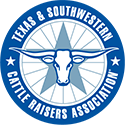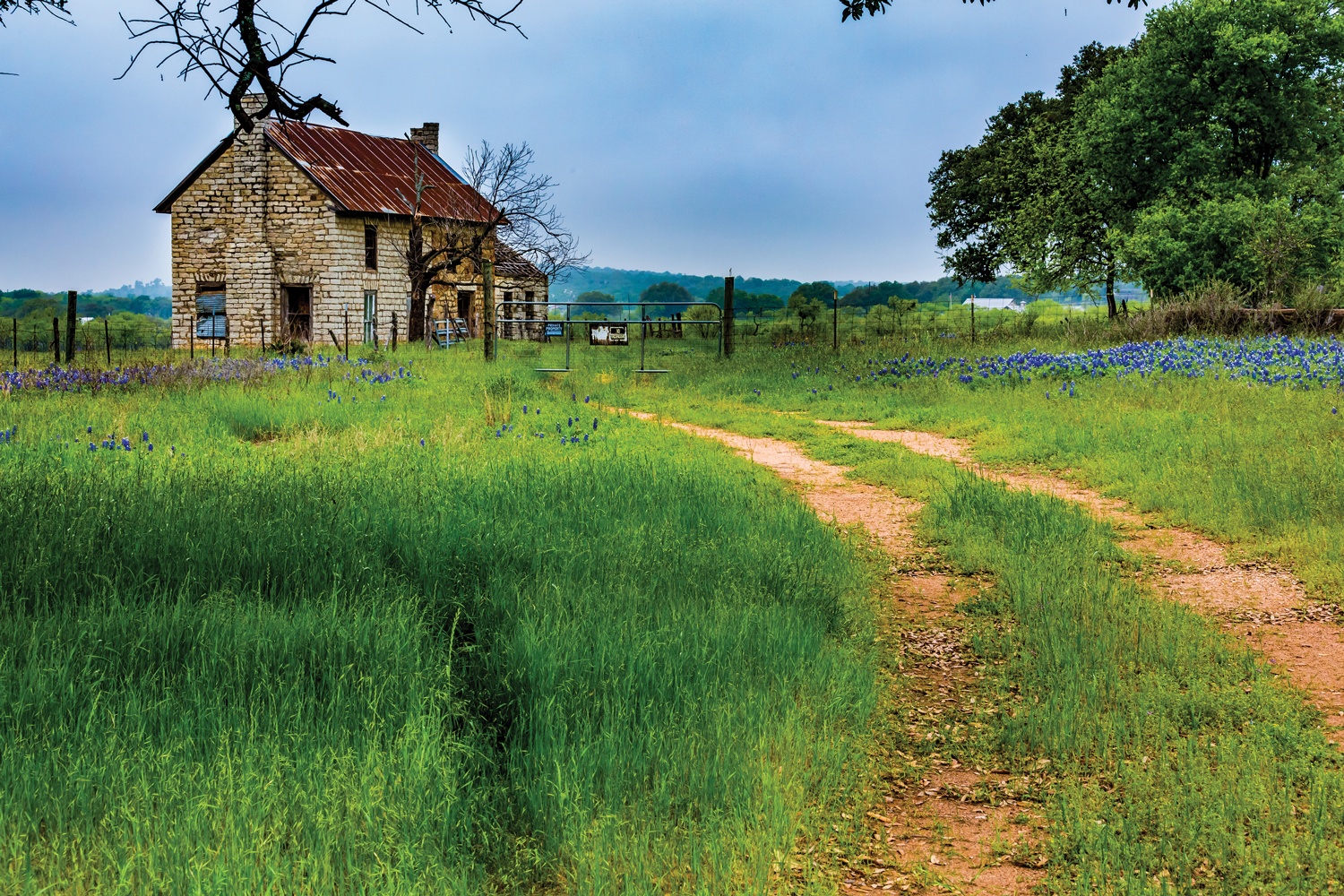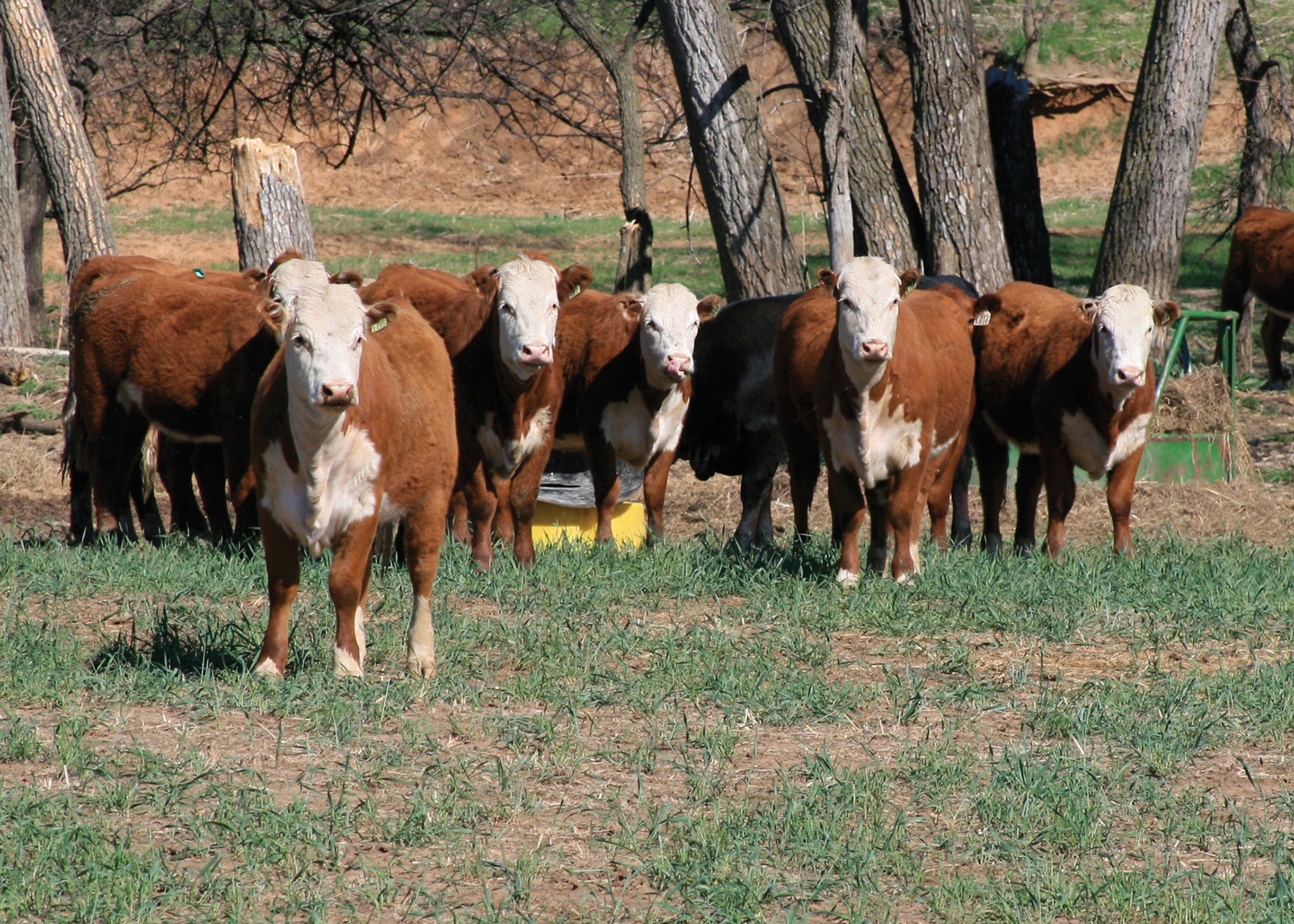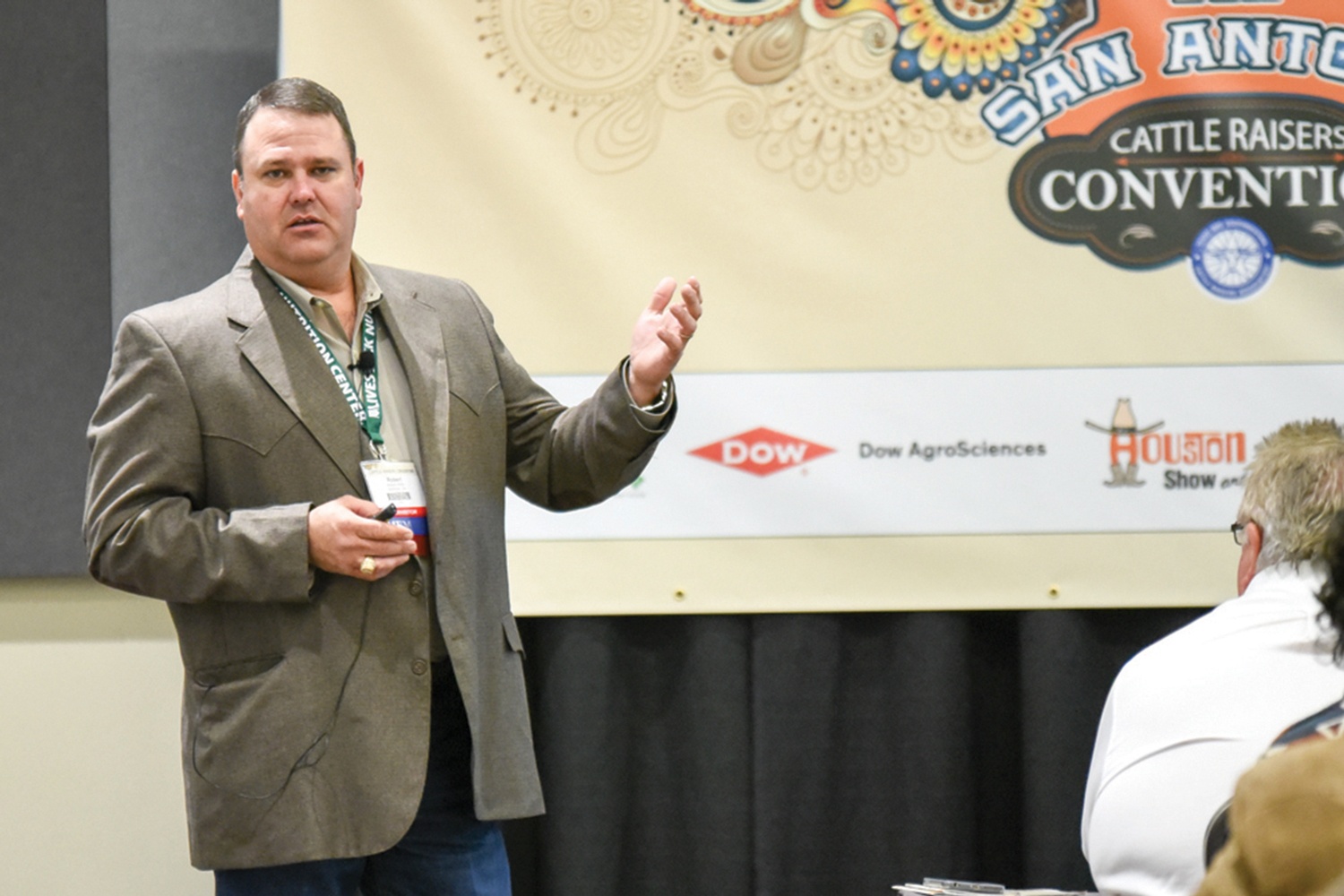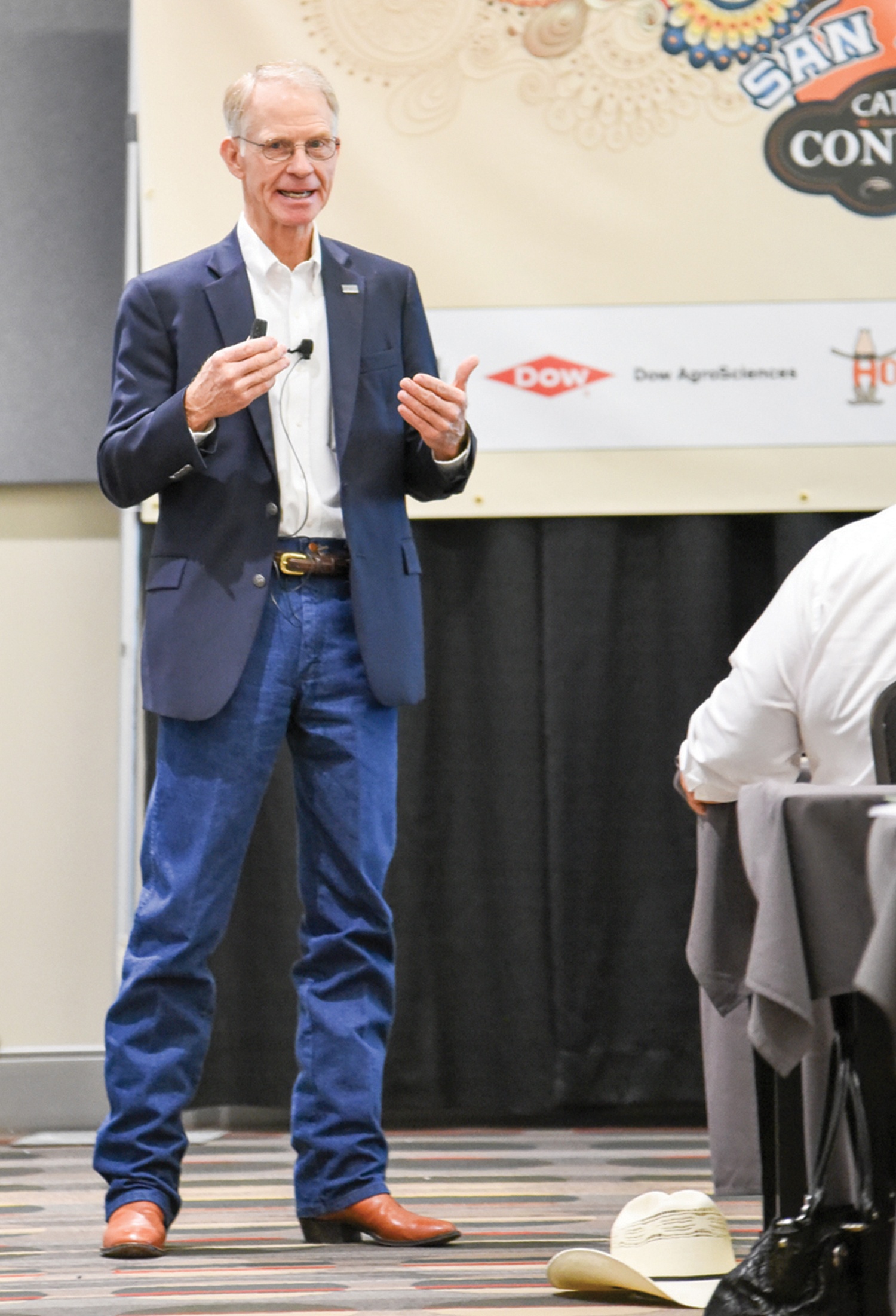Will You Bless Your Heirs, or Burden Them?

By Ellen H. Brisendine
Do your heirs look forward to running the ranch business you plan to leave them or do they grit their teeth and wonder what they’ll do with it?
Do they have a real interest in the business of ranching or do they have a sentimental attachment to the old home place? If they have the interest, do they have the skills, the time and the resources to take over the business you built? Are you ready to trust your heirs?
Dan Childs and Robert Wells have extensive experience in helping ranchers develop estate transition plans. They brought their practical information to the 2017 School for Successful Ranching at the Cattle Raisers Convention in March. Both are with the Noble Research Institute, formerly The Samuel Roberts Noble Foundation.
Childs and Wells agree that the assets or business you want to pass to the next generation should be a blessing and not a burden. The blessing requires planning and regular review. The burden is the result of not doing enough — not communicating enough, not planning enough, and not preparing your heirs.
Childs says every rancher needs a transition plan. The first step is to write your will. If you don’t have a will, your state has a one-size-fits-all that they’ll impose on you. “If you want to have some input into that, then design your own will,” Childs says.
Know what you own and how you own it
Start your estate transition plan with a balance sheet, Childs says. This is a snapshot of your net worth at that time. It lists the sources of your net worth and can help you gauge the liquidity of your assets.
While you are assembling the balance sheet, you can also “talk about how those assets are owned because that sometimes impacts how you can distribute them,” Childs says.
“For instance, if you own land with joint tenancy with right of survivorship, that deed trumps the will. You say, ‘I want my half of joint tenancy to go to my kids.’ Well, whoever is the other joint tenancy inherits that part of the property because it’s joint tenancy with right of survivorship. If it’s joint tenancy in common, then you do have the opportunity to will that half,” he says.
Your attorney will want to know how you own your assets.
You don’t know how long you’ll live, but you do get to plan how you’ll live
“We don’t want our money to run out before we do,” Childs says and gives these interesting demographics to consider.
Females tend to live longer than men.
Men who reach age 65 have a 50 percent chance to live on to age 85.
Females who live to age 65 have a 50 percent chance to live to age 88.
“It is likely that one of the spouses is going to live to be 91. The point of this is, we’re probably all going to live longer than we think,” Childs says. “Evaluate your income sources — farm assets, savings and investments. Are you going to work and stay active, generate income in your retirement? What kind of pension income are you going to have? All of these are important as we think about this inter-generational transfer.”
Will your heirs have to pay estate taxes? Your balance sheet will help you find out.
“Start with a balance sheet of your net worth to know whether your estate meets the threshold of having to pay estate taxes during a transition,” Childs says.
That threshold is $5.49 million per individual,” he says. “If your estate is larger than that, then the amount above that will be taxed at 40 percent for this year.”
Consult with an estate-planning expert or tax advisor to take advantage of portability, Childs says. “Portability is a relatively new term,” he explains. “It means in cases of husband and wife if, when the first one passes, their estate is not $5.49 million, the difference between what their estate is and $5.49 million is added to the second one to pass. The combination of the 2 owners then would have $10.98 million as an estate tax threshold, if it were needed. You need to file a Form 706 to get the portability to the next surviving spouse.
“In today’s tax environment we have a step-up in basis at the date of death or 6 months later, whichever you choose, whichever is the highest. This means that at the date of death, the assets are appraised and the basis becomes what the market value was at the date of death,” Childs explains.
“This has huge income tax implications for heirs because you can imagine that many of you, if you’ve owned land very long, probably have a very low basis in that land — $100 or $500 an acre for example. Now, it may be worth $1,000 or $2,000 or $3,000 an acre,” Childs says.
Individuals may give away up to $14,000 per year to as many people as they wish, free of gift-tax. Childs says this is one way to reduce the value of the estate, if needed.
“Once you complete the balance sheet you can see if you have an estate tax problem,” he says.
Transferring assets or a business?
Assets are easier to transfer than is a business, Childs points out. “In some cases, the heirs are not interested in the business. They’re interested in the wealth. You have to decide what you’re going to do in that case,” Childs says.
State your wishes in a will, he says. Use the document to explain how you want your assets to be distributed, to whom they should go and in what portions.
“Of course, you have to be of sound mind when you do that, so let’s not wait too long to get that executed,” he urges.
If you have heirs, find out if they want to inherit the ranch business. If so, work with your attorney and estate-planning professional to transfer the business to the next generation during your lifetime, or after your passing.
If you don’t have heirs, or don’t have heirs interested in taking over the management of the ranch business, then Childs says, “You liquidate or hire someone or seek outside successors and form a relationship. Develop some kind of a partnership or lease sale,” he says, listing possible solutions to a tough situation.
“If you do have heirs that are interested in keeping the ranch and operating it as a business, you’re blessed and very fortunate,” he says.
“In a successful transition, the balance sheet lets you know where you are now. Communicate with your heirs what you want to do. Are your ideas compatible with theirs? If needed, develop a business succession plan, which is a lot different than just passing on assets. A business succession plan is much more complicated than transferring assets. It takes a lot longer runway to prepare the next generation to operate the business.”
“You need a team of specialists — a tax specialist and an attorney,” Childs says. “CPAs and all attorneys are not created equal. They have different strengths and competencies. Seek someone who has agricultural knowledge, because they can understand your needs much better.”
Willing to inherit and able to manage
Robert Wells echoes Child’s advice and urges ranchers to make sure the people who are “executing your will, handling your estate transition and those receiving the assets are competent.
“Make sure those people are willing and able to handle that responsibility. Sit down, while you still can, not only with the family members or the people who are going to be the beneficiaries of your estate, but also with those people who are going to be either the executor or the trustee.”
Gather all of these individuals for a meeting and “make sure everybody understands what the resources are, what the commitments are going to be, and that everybody is willing to fulfill their role in the transition of your operation,” Wells says.
Tell your heirs what you expect more than one time. Wells encourages estate owners to have this conversation with their heirs at least annually. “But if yours is a more complex or bigger operation, make sure everybody who is going to be involved stays up-to-date and knows what’s going to be happening.”
Managing expectations can be a challenge, Wells says. “Manage the expectations not only for yourself, but manage it for your heirs and manage it for those people who are going to be seeing your wishes through.”
Be clear about what your heir is inheriting. Maybe a family member inherits the ranch, Wells says, “but they didn’t realize there was a big debt that came with it. If you’re named as the beneficiary of the ranch as an operation, you don’t only just get the good. You get the bad that comes with it. You need to make sure you manage all that.
“Make sure everybody has the proper skill sets. That sounds simple, but if you have asked your townie best friend to be the executor or the trustee for your estate, does he or she fully understand what’s involved with managing your operation? Does he or she have a full understanding that we need to put down fertilizer, we need to put down weed spray or brush control or what is an old cow? Make sure your trustees and your beneficiaries all have the right skill sets,” Wells says.
Annual financial health check up
Appraise the financial health of your assets every year, Wells says, so you’ll know the wishes you’ve placed in your will can be carried out.
“If your intent is to make sure you leave the majority of your assets to your heirs, but you have written in there that a not-for-profit organization is going to receive this percent or this dollar value of your trust or your will, and your financial health has changed, that’s locked in. The executor of your estate is going to have to make sure that the beneficiary, that not-for-profit, gets exactly what you put down in there. It may not be your intent for your heir to have to sell part of the ranch to meet those needs, but if it’s in black and white, that’s what’s going to have to happen. That’s why I say don’t over-commit your operation.”
When you pass, trust your heirs
Wells says, “Trust your heirs. Don’t manage from the grave. There are many vehicles we can use in the legal field that allow you to manage your operation from the grave for the lifetime of your heir or even past that.
“Trust that your heirs are going to make the right decisions. You’re not going to be alive. You’re not going to be privy to the circumstances at that time. If you bind the operation too tightly because you never want to see the ranch liquidated, that’s going to put your heirs in a bind,” Wells says. “Give your heirs the flexibility and the control to be able to do what they need to do. Give them the opportunity to have the flexibility to do what they see is necessary into the future. You may not have been able to foresee everything.”
Who bales your hay or sprays your pastures?
Wells says you are providing a great help to your heirs when you document those who help with everyday ranch activities. Who bales your hay? Sprays your pasture? Who’s your best mechanic? Who services your windmills and wells?
“If your heir is not an integral part of the operation on a daily basis, they’re not going to know that.
Keep the list in an address book, or on a Big Chief tablet, or on your computer — just somewhere obvious.
Wells offers these additional practical tips to make life easier for those left behind.
“Put all your important documents in a safe place. Make sure that your heirs and your executors know where those documents are,” he says, referring to marriage documents, birth certificates and military discharge papers.
Keep all your records in a safe place and let everyone know where that is. “Put everything in a fireproof safe or fireproof file cabinet.”
If you have a Do Not Resuscitate (DNR) order, keep it with your important papers and let everyone know where it is.
Wells says, “A DNR can be executed only if it is on file at the hospital or if your heirs or somebody in your family has access to that original DNR. Otherwise, the hospital won’t honor your verbal commitment or your heirs’ commitment to that. They have to have it in writing.”
Wells and Childs say that with communication and planning, an inheritance can be a blessing to the next generation and not a burden.
Childs says, “If you don’t have an estate plan, we hope you get one developed. If you have an estate plan, we hope you review it to make sure that it is doing what you want it to do. Every year a few things change. If you think you have that plan laid by, you may want to dust it off and take a look at it again.”
Make sure it is up-to-date and still in line with what your personal objectives are. No one will remember what you said, only what is written. ❚
Noble Research Institute Speakers
Dan Childs is a senior agriculture consultant in the producer relations program where he serves as an economist. His areas of interest include farm taxation and estate planning, financial budgeting, planning and analysis, and livestock marketing. Childs enjoys working with farm families and helping them achieve their goals. He joined the Noble Foundation staff in 1978.
Dr. Robert Wells serves as a livestock consultant in the producer relations program. He joined the consultant program in 2005. His areas of emphasis include forage-based beef cattle production and cow-calf nutrition, herd health programs, improving herd genetics, and value-added calf programs. He is also the executive director of the Integrity Beef Alliance, a marketing alliance of producers in North Texas and Oklahoma who produce high quality, value-added calves for the feeder market and replacement quality females.
“Bless Your Heirs” is excerpted from the August 2017 issue of The Cattleman magazine.
